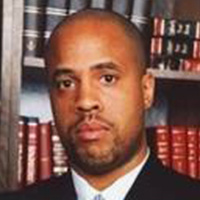Seligman Criminal Lawyer, Arizona
Sponsored Law Firm
-
 x
x

Click For More Info:
-
Kenneth S. Countryman, P.C.
1130 North 2nd Street P.O. BOX 11077 Phoenix, AZ 85004» view mapCriminal Defense Law A Law Firm You Can Trust
Let Kenneth S. Countryman, P.C. handle your criminal defense legal matters.
800-978-0861
M Alex Harris
Juvenile Law, Other, Public Schools, Criminal
Status: In Good Standing Licensed: 28 Years
Daniel F Furlong
DUI-DWI, Criminal, Bankruptcy, Bankruptcy & Debt
Status: In Good Standing Licensed: 43 Years
Craig Williams
Domestic Violence & Neglect, Divorce & Family Law, DUI-DWI, Criminal
Status: In Good Standing
 Kenneth Countryman Phoenix, AZ
Kenneth Countryman Phoenix, AZ Practice AreasExpertise
Practice AreasExpertise
